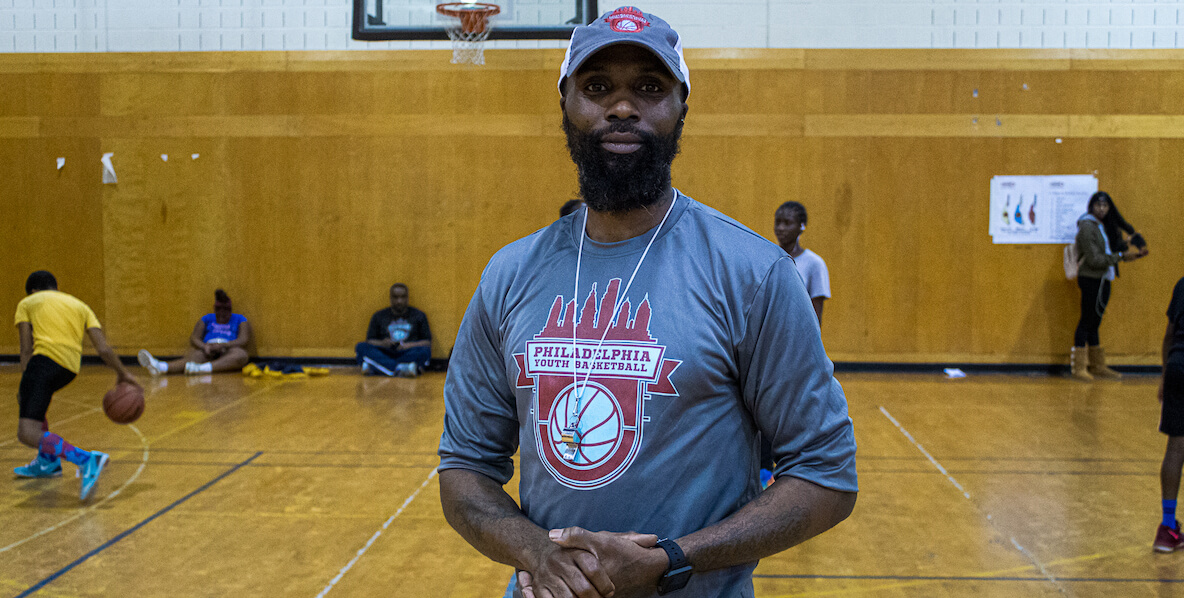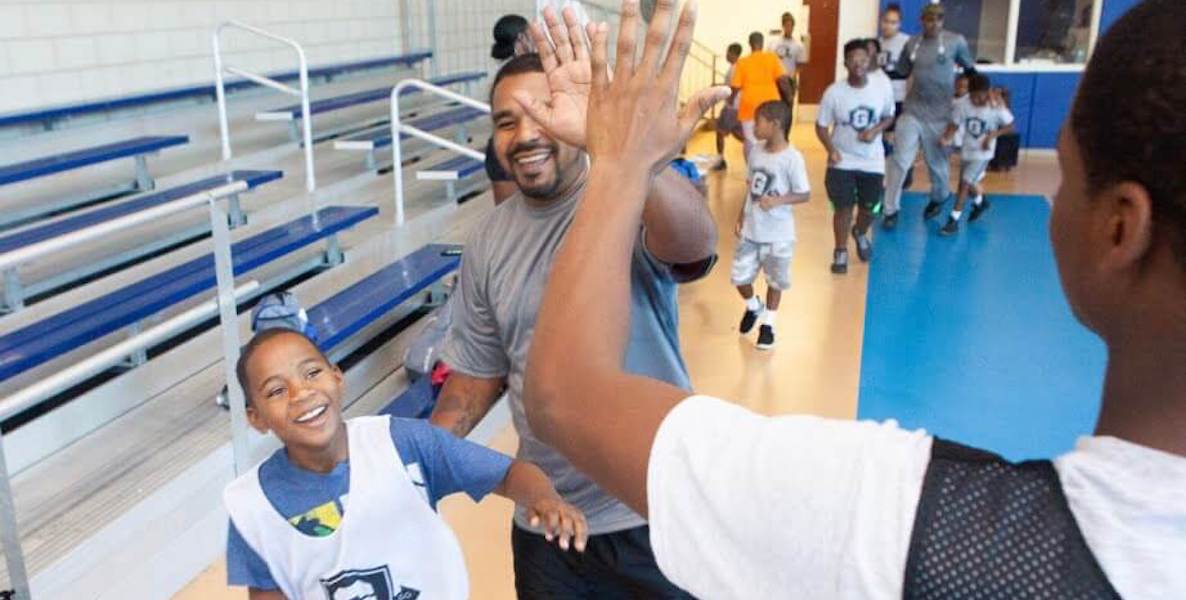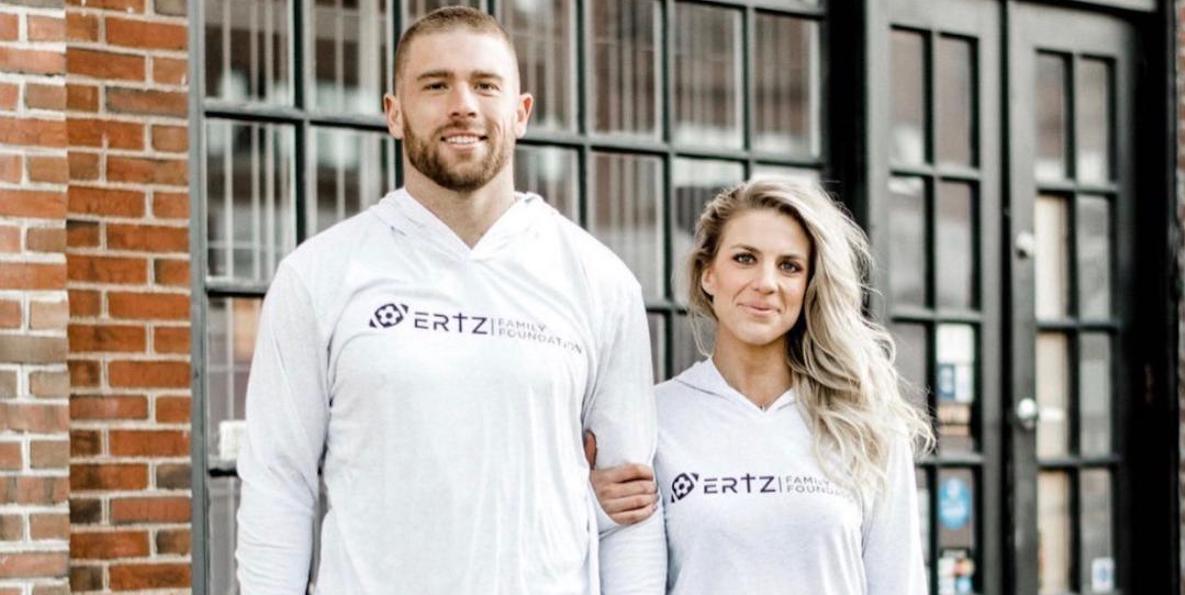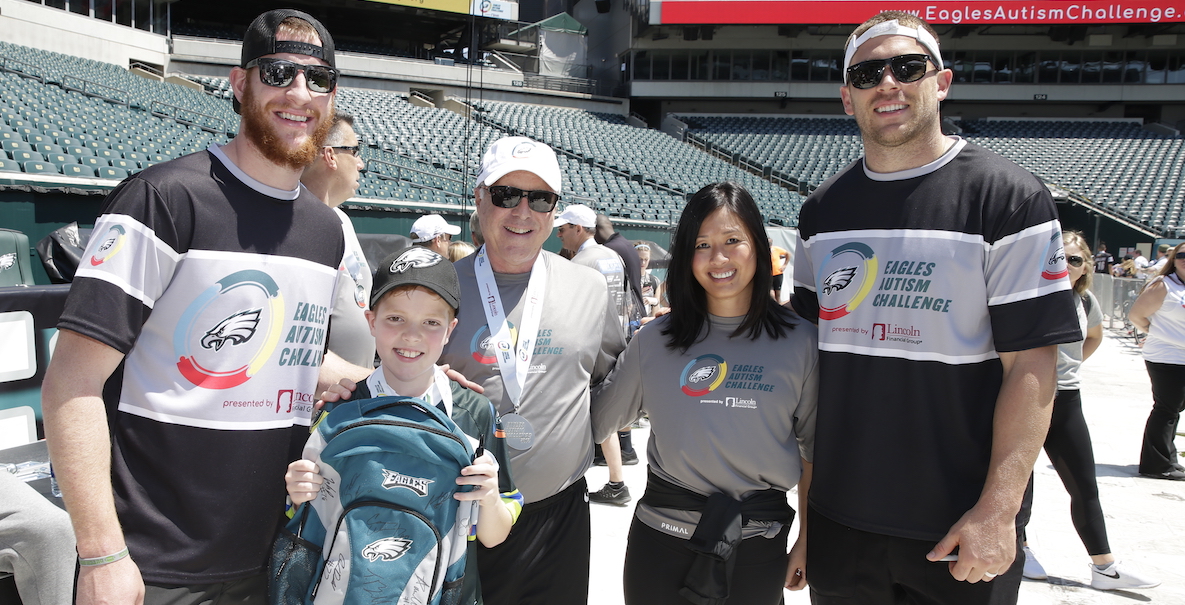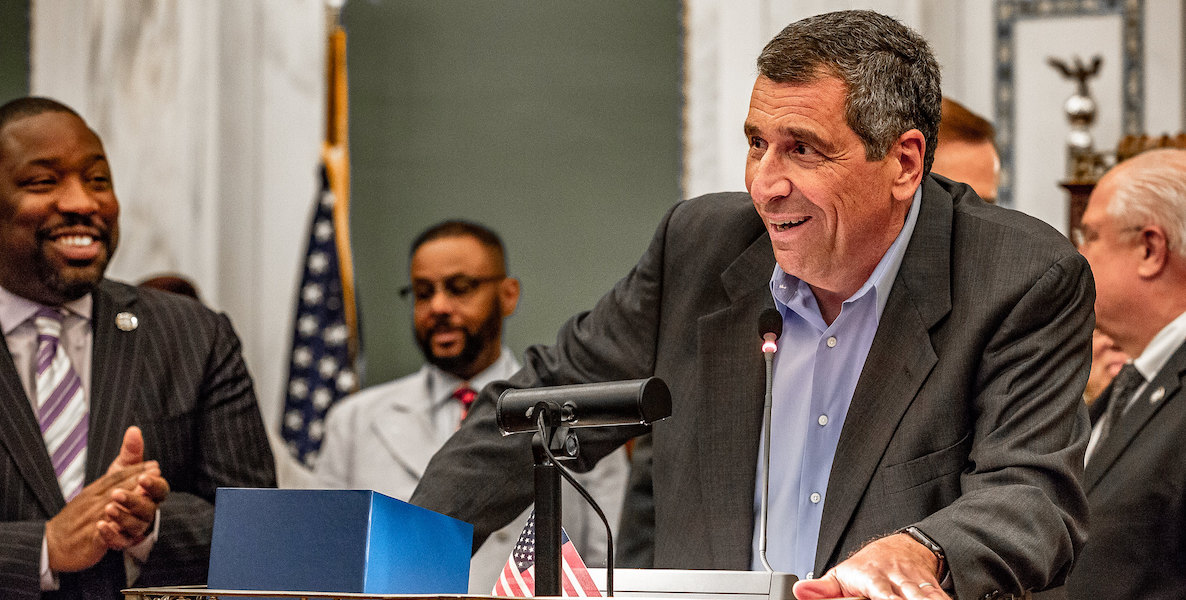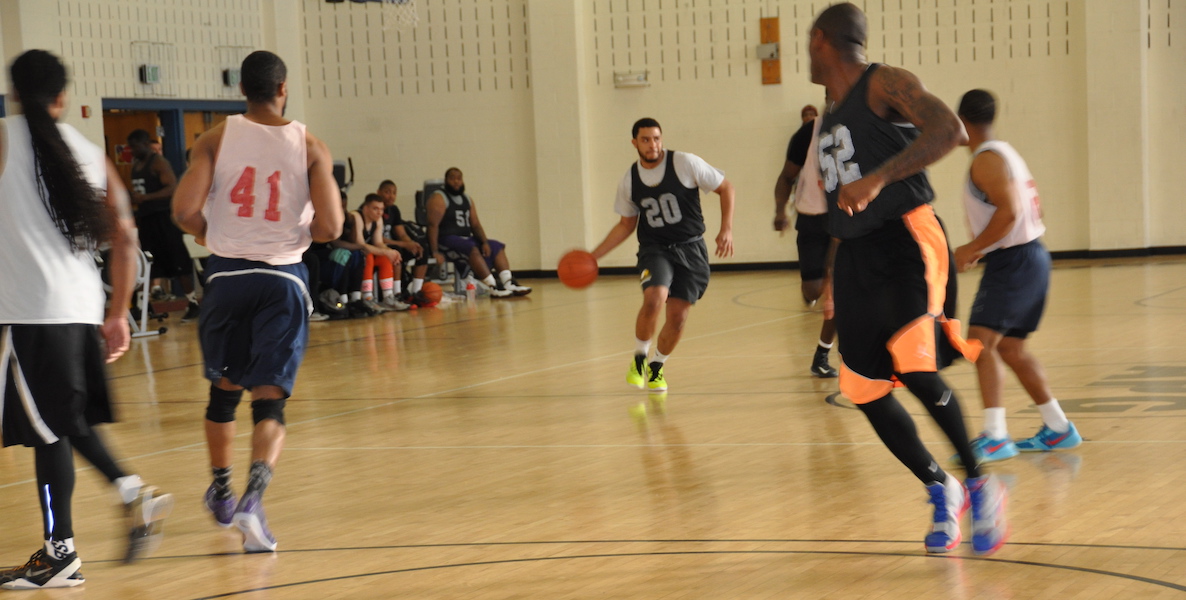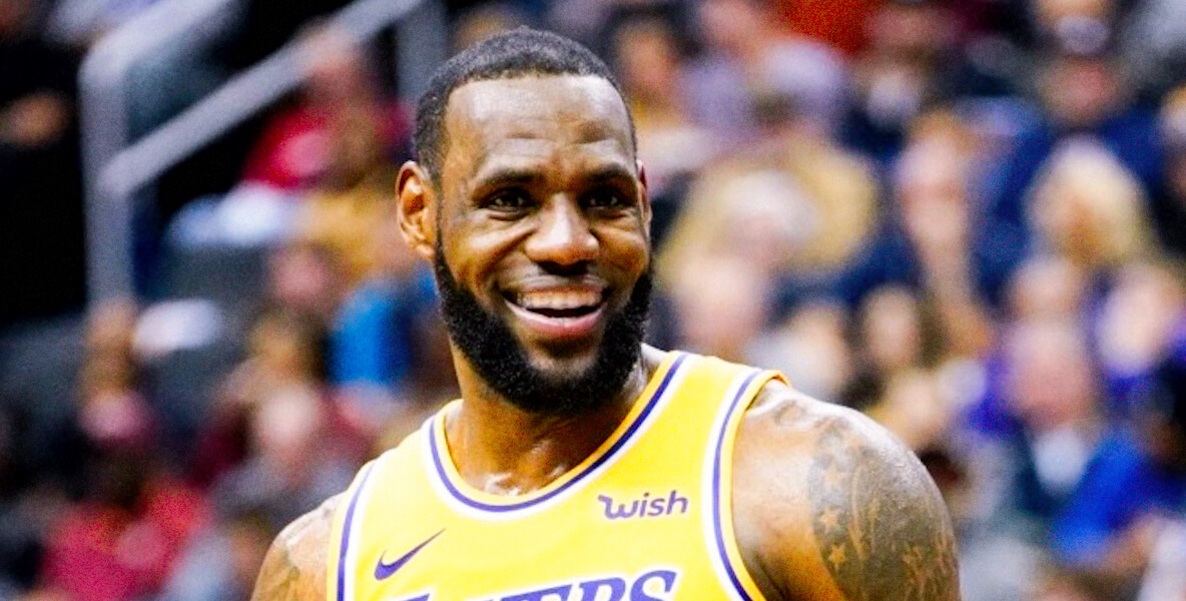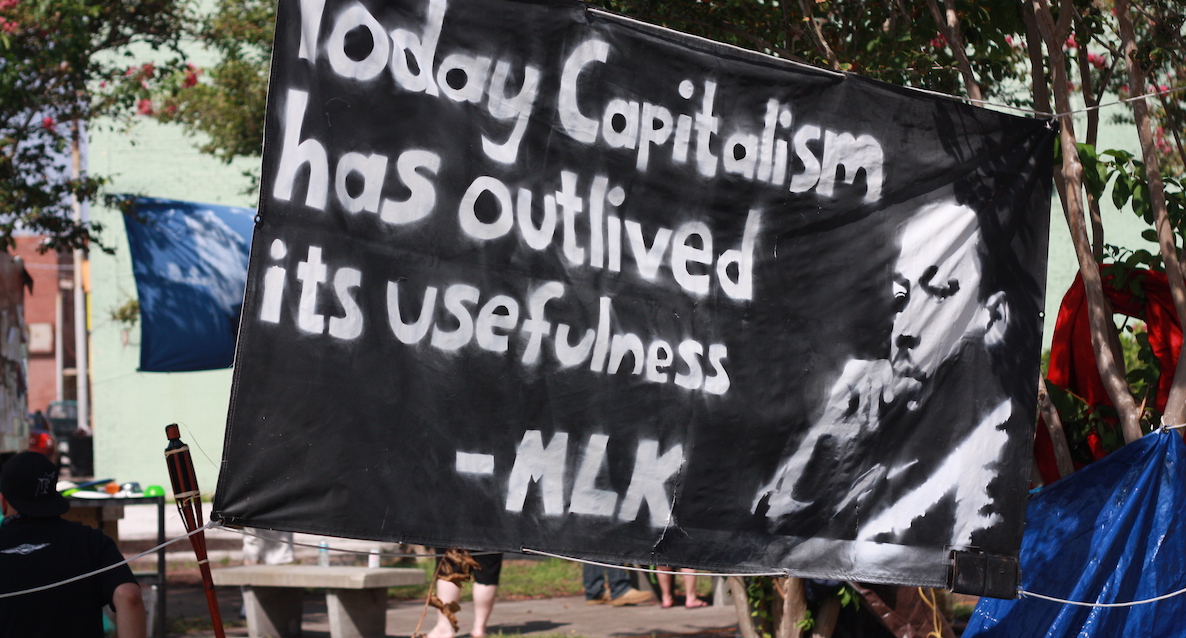![]() When NBA players staged an impromptu wildcat strike last month after police shot Jacob Blake in the back seven times, the conventional wisdom took hold.
When NBA players staged an impromptu wildcat strike last month after police shot Jacob Blake in the back seven times, the conventional wisdom took hold.
Forbes called the collective action “unprecedented,” and noted that “when players take a stand, they have the ability to win.”
“This is a universally unique day in history and in sport,” agreed Ken Shropshire, CEO of Arizona State University’s Global Sport Institute.
“It’s become clear that athletes have considerably more power than they did back then,” chimed in New York University history professor Jeffrey Sammons, referring to the ‘60s and early ‘70s, commonly thought of as the golden age of athletes and activism, with Muhammad Ali’s pithy Vietnam protests—“I ain’t got no quarrel with them Vietcong”—and John Carlos’ and Tommie Smith’s Olympic power salutes.
Imagine if LeBron and his fellow players had demanded that the league take its billions out of BBVA—the Spanish conglomerate that is the league’s “official bank”—and instead deposit its considerable nest egg in Black-owned banks or a B Corp like Amalgamated Bank. That would be truly disruptive and reform-minded.
After the Michael Jordan-led “Republicans buy sneakers too” era of athlete detachment, many of us have been cheering this new wave of jock engagement. WNBA stars like Maya Moore (who essentially gave up her career to work full-time on getting an innocent man off death row) and the NBA’s LeBron James, who educates at-risk youth and is a prominent voice against voter suppression, have been ground-breakers.
![]() That’s why it was disappointing that, when the NBA players walked out, their list of demands seemed so small-ball. A commitment from NBA owners to use team arenas for mass voting and the establishment of a $300 million social justice fund are good. But all the leverage had been on the players’ side. It seemed like the players choked.
That’s why it was disappointing that, when the NBA players walked out, their list of demands seemed so small-ball. A commitment from NBA owners to use team arenas for mass voting and the establishment of a $300 million social justice fund are good. But all the leverage had been on the players’ side. It seemed like the players choked.
“Ah, yes, you’re talking about the Dog Day Afternoon phenomenon,” Shropshire, a former Wharton professor, said when I called to express my disappointment in what the NBA players settled for. He was referencing the scene in the classic Al Pacino movie in which it becomes clear that the bank robbers had given little thought to what they wanted before they took their hostages. “Is there any special country you want to go to?” Pacino’s Sonny asks his partner, Sal, during the siege.
“Wyoming,” Sal says.
https://www.youtube.com/watch?v=kifoTFRe2Ck
There could have been another way. The NBA players—80 percent of whom are Black, in a league with almost all-white team owners—could have instead used their power to agitate for groundbreaking systemic racial and economic justice.
“If you want to know what white supremacy looks like in the C-suite, it looks like shareholder primacy—the legal system that says public businesses must maximize profits at all costs,” says Jay Coen Gilbert, co-founder of And1, the iconic basketball apparel brand, and of B Lab, the nonprofit that certifies B Corps and has fueled the business for good movement.
![]() In fact, Coen Gilbert is one of the shapers behind Imperative21, a new “campaign to reset Capitalism.” It’s a coalition of six influential, forward-thinking business networks representing 72,000 businesses, 18 million employees, and $21 billion in social investment—B Lab, the B Team, Chief Executives for Corporate Purpose, Inclusive Capitalism, Conscious Capitalism and Just Capital—that are committed to creating a more just economy by redesigning capitalism to create long-term value for all stakeholders, not just shareholders.
In fact, Coen Gilbert is one of the shapers behind Imperative21, a new “campaign to reset Capitalism.” It’s a coalition of six influential, forward-thinking business networks representing 72,000 businesses, 18 million employees, and $21 billion in social investment—B Lab, the B Team, Chief Executives for Corporate Purpose, Inclusive Capitalism, Conscious Capitalism and Just Capital—that are committed to creating a more just economy by redesigning capitalism to create long-term value for all stakeholders, not just shareholders.
Worldwide, thousands of companies, including Danone NA and Patagonia, have become B Corps, which essentially do just that. They are not required to maximize profit; rather, they must consider the impact of their decisions on all their stakeholders—their workers, customers, suppliers, communities and the environment.
How groundbreaking would it have been if LeBron et al had signed onto the Imperative21 movement and used their leverage to insist that the NBA become the first sports league to require its teams to become B Corps? It would have placed combating inequality at the very core of the league’s mission.
A commitment from NBA owners to use team arenas for mass voting and the establishment of a $300 million social justice fund are good. But all the leverage had been on the players’ side. It seemed like the players choked.
Yes, Coen Gilbert argues, of course hard work had much to do with all those Masters of the Universe owning all those sports franchises, but so too did intergenerational wealth built over 400 years on a highly unequal playing field. What would it look like if a couple of B Corps battle it out on the hardwood of the NBA Finals?
Well, had the Los Angeles Clippers been a B Corp a few years back under buffoonish former owner Donald Sterling, who had seemed to step right out of the film Twelve Years A Slave, (“look at those beautiful black bodies,” he was alleged to have marveled when taking female friends into the locker room) the B Lab certification process would have disclosed the lawsuits alleging racial housing discrimination in Sterling’s past that only later came to light.
![]() Likewise, B Corps are committed to transparency when it comes to diversity and inclusion. ASU’s Shropshire points out that, until recently, Major League Baseball’s Executive Committee consisted of seven white dudes in their 70s; two recent additions contributed a dollop of color. In the predominantly Black NBA, less than a third of the league’s general managers and only five of its coaches are African American.
Likewise, B Corps are committed to transparency when it comes to diversity and inclusion. ASU’s Shropshire points out that, until recently, Major League Baseball’s Executive Committee consisted of seven white dudes in their 70s; two recent additions contributed a dollop of color. In the predominantly Black NBA, less than a third of the league’s general managers and only five of its coaches are African American.
Coen Gilbert says B Lab’s Impact Assessment test for prospective B Corps is being revamped in consultation with prominent anti-racist thinkers. In the future, B Lab certification might be limited, say, to companies that hire workforces that reflect the racial makeup of their communities, or that exhibit fair worker-to-CEO pay ratios.
Most importantly, had LeBron and his fellow boardroom ballers stepped up and told NBA Commissioner Adam Silver to break new ground by going the B Corp route, they would have been directly engaging the systemic issues that corrode our economy. The median wealth of a Black family? $17,000 per year, a tenth of that of a white family with the same income. In Philly, a city that is 45 percent Black, only 2.5 percent of businesses are owned by African Americans. (Six percent if you count sole proprietors.)
Gaps in wealth and opportunity like this don’t just happen. They are the product of discrete choices made over time. So what new choices can be made now? Well, consider that, of the 5,000 banks in America, only 21 are owned by African Americans. Let that sink in.
How groundbreaking would it have been if LeBron et al had used their leverage to insist that the NBA become the first sports league to require its teams to become B Corps? It would have placed combating inequality at the very core of the league’s mission.
Last month, Black-owned City First Bank in Washington, D.C. announced that it would be merging with fellow Black-owned Los Angeles-based Broadway Federal Bank; the new entity will be a B Corp as well as the nation’s largest Black-owned bank, with $1 billion in assets and $850 million in deposits. It will serve low and moderate-income areas with lending that focuses on multifamily housing, small businesses and nonprofits.
Imagine if, in the aftermath of the Jacob Blake shooting, LeBron and his fellow players had demanded that the league take its billions out of BBVA—the Spanish conglomerate that is the league’s “official bank”—and instead deposit its considerable nest egg in Black-owned banks or a B Corp like Amalgamated Bank, the nation’s largest union-owned bank, for the express purpose of targeted investment in distressed Black and Brown neighborhoods.
That would be truly disruptive and reform-minded, the NBA doing what Congress and traditional banking has long paid little more than lip service to: Investing in urban entrepreneurship. It would be an acknowledgement, as Coen Gilbert says, that for far too long, too much of our economic system has been “designed for the owners of the system, and it’s time it was designed for the players in the system—every one of us.”
And far more than playing on a court adorned with the Black Lives Matter slogan, it would also be a way to tangibly change real people’s lives for the better.
Photo courtesy Wikimedia Commons


